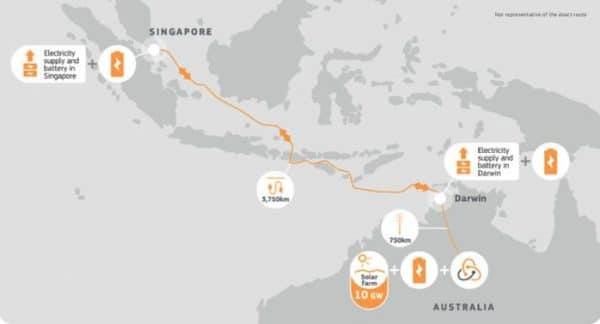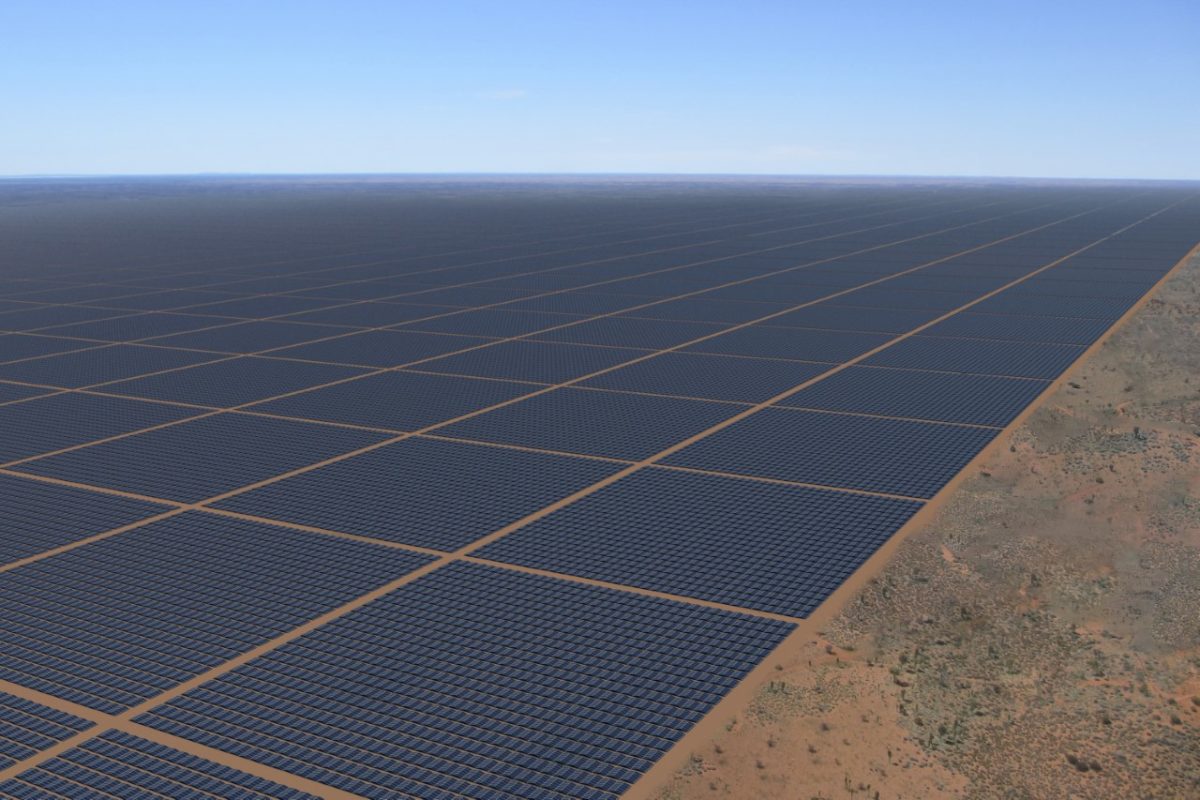Plans to develop a 10 GW solar farm coupled with a 30 GW storage facility near Tennant Creek and export solar power to Singapore via a submarine transmission link continue to gather steam after the Northern Territory Government and Sun Cable signed the Project Development Agreement (PDA) on Thursday.
The Territory Government said in a statement the PDA provides a roadmap which would allow it to work in partnership with Sun Cable to finalise land tenure and commercial arrangements for the AAPL ahead of the project’s financial close.
Northern Territory Chief Minister Michael Gunner said the signing of the PDA is a big step forward for the Territory.
“This project will put the NT on the international map when it comes to renewables,” he said. “This project will transform the Territory into a renewable energy powerhouse.”
The solar farm and battery storage facility will be built across 12,000 hectares on Powell Creek station, about 70 km southwest of Elliott, in the Northern Territory’s Barkly region. As well as the region’s climatic advantages, the facility will capitalise on close access to road and rail infrastructure.

Image: Sun Cable
Once operational, power from what will be Australia’s largest renewable energy infrastructure project will be exported via a high voltage direct current (HVDC) transmission link connecting the precinct to the Darwin-Katherine Interconnected System (DKIS) and proposed Middle Arm Battery to be built next to the Weddell Power Station. Power will then be transported via a 3,800-km HVDC submarine cable to Singapore with the project expected to generate enough renewable electricity to power more than 3 million homes a year.
“Through the Australia-ASEAN Power Link, Sun Cable seeks to generate and transmit dispatchable, competitively-priced, renewable energy at scale,” Sun Cable managing director David Griffin said.
“This will provide affordable, reliable energy to support industrial growth in Darwin, as well as supplying up to 20% of Singapore’s electricity needs.”
Economic boost
It is estimated the project will inject up to $8 billion into the Territory economy with about 1,500 jobs to be created during construction and 350 ongoing positions once operations begin. Once operational, it is estimated the AAPL will export $1 billion worth of solar electricity each year.
Northern Territory Minister for Renewables and Energy Eva Lawler said the AAPL was a major success story for the territory.
“This agreement shows strong confidence for investing in the Northern Territory and investing in renewable energy, which is not only good for the environment, but good for the economy,” she said.
“Locals can look forward to affordable energy that’s reliable and renewable by the end of the decade.
“We look forward to the next steps of this exciting project.”
Sun Cable has said construction for the project will begin immediately after financial close in October 2023 with commercial operations to commence in 2027.
Since it was first announced in 2019, the AAPL has progressed rapidly. Less than one month after the project was announced it was awarded Major Project Status by the Northern Territory government. In July 2020, the Federal Government moved to fast track the project, granting it Major Project Status, recognising the project’s potential to inject billions into the economy while two of Australia’s richest people, Mike Cannon-Brookes and Andrew Forrest, have also lent their support.
Sun Cable has confirmed Sydney-based solar module manufacturer 5B will supply pre-fabricated, re-deployable modules for the project while Singapore based independent electricity retailer iSwitch has pledged its support to be a foundation off-taker for the solar energy produced by the project.
This content is protected by copyright and may not be reused. If you want to cooperate with us and would like to reuse some of our content, please contact: editors@pv-magazine.com.









3 comments
By submitting this form you agree to pv magazine using your data for the purposes of publishing your comment.
Your personal data will only be disclosed or otherwise transmitted to third parties for the purposes of spam filtering or if this is necessary for technical maintenance of the website. Any other transfer to third parties will not take place unless this is justified on the basis of applicable data protection regulations or if pv magazine is legally obliged to do so.
You may revoke this consent at any time with effect for the future, in which case your personal data will be deleted immediately. Otherwise, your data will be deleted if pv magazine has processed your request or the purpose of data storage is fulfilled.
Further information on data privacy can be found in our Data Protection Policy.